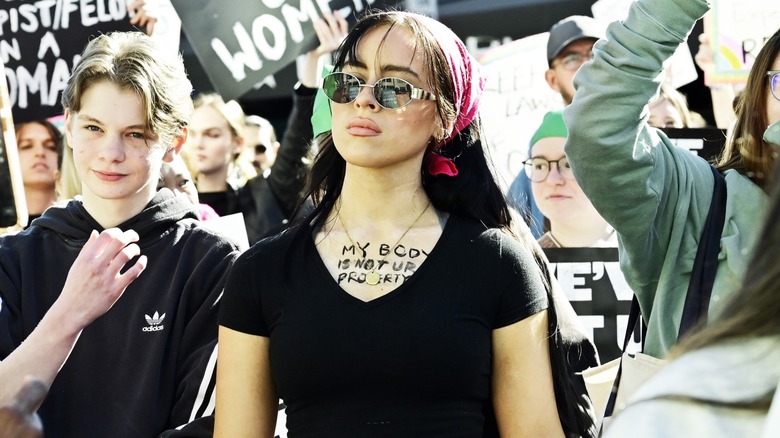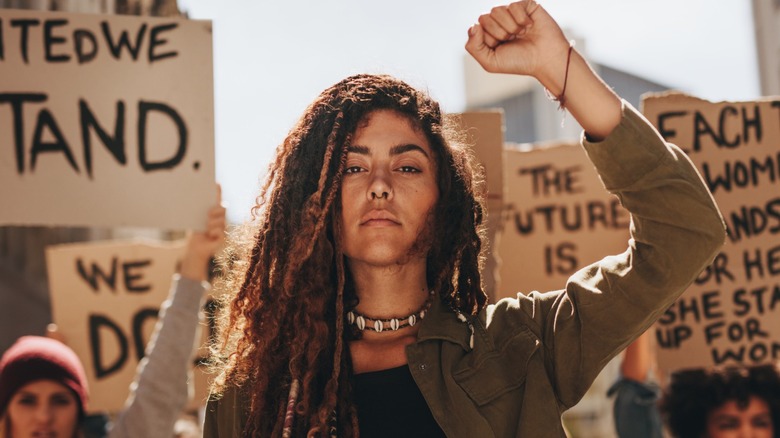What Is The 4B Movement? (And Why It Packs More Punch This Time Around)
The 4B movement has made waves across college campuses in the U.S., and it's gained serious steam since Donald Trump (the man who oversaw abortion bans across the U.S.) was controversially elected for his second term as president. 4B originated in South Korea but gained attention internationally thanks to social media. Essentially, it involves those who identify as women taking back control of their bodies by refusing intimacy with anyone who identifies as a man. That means no dating, no sex, no marriage, and no procreation to make a statement. "Many women in the U.S. are very, very angry about how male-dominated institutions — and individual men — have tried to control us. 4B represents, not just a Lysistrata-like weaponization of our bodies against men who try to control them, but also a strategy for getting some distance on, some separation from, a toxic and violent aspect of our culture and politics," Leigh Ann Wheeler, PhD, feminist historian, and professor at Binghamton University, exclusively tells Women. That's not to say all men are bad, of course. Many men fully support women's rights, but those who don't have led many women to feel they have no choice but to take drastic measures.
But this movement is different from anything we saw during the first, second, or third feminism waves, partly because it's much more inclusive as it's not limited to straight women distancing themselves from straight men. "The recent proliferation of 'identities' — by gender, sexual orientation, etc. — opens new possibilities for women to participate in political projects that might seem unavailable to us," Wheeler explained. "In other words, 'lesbian separatist' is no longer the only identity that offers a woman autonomy."
Social media and changing norms are driving the 4B movement
Timing is also a huge part of why the 4B movement is packing such a punch. It gives women the space and knowledge to question the value of sex and marriage with men — particularly straight men who can often be fake male feminists — at a time when people feel freer to stray from traditional norms and expectations. For example, a 2023 Bumble survey found only 23% of 25,000 women respondents aspired to marriage. And it's hard to argue that, beyond procreation, women no longer need men as they focus on fulfilling their own aspirations and earning their own money. The Academy of Women's Leadership global figures reveal that, in 2023, women accounted for 41.9% of workers, with 32.2% in senior leadership positions. Even more telling? 2024 Pew Research Center data found that among 18- to 34-year-olds in the U.S., men are more likely to want children than women — but that certainly doesn't give them the right to make decisions about women's bodies.
The movement is also leaving a mark because there are so many ways to communicate its sentiment. Much like how microfeminism went viral on TikTok, search "#4BMovement" and you'll see countless videos educating others while gaining millions of views. One video from @ellenjacksn has 8.9 million views and shows her with a shaved head in support of the concept. Another clip of @blueeyedkaylajade sharing her thoughts has 1.3 million views. Having so much information at our fingertips allows young women to develop a political consciousness they may not have otherwise been open to, while also helping them understand their true political power. As long as we keep using social media to educate, the 4B movement has the opportunity to make a lasting impact.

